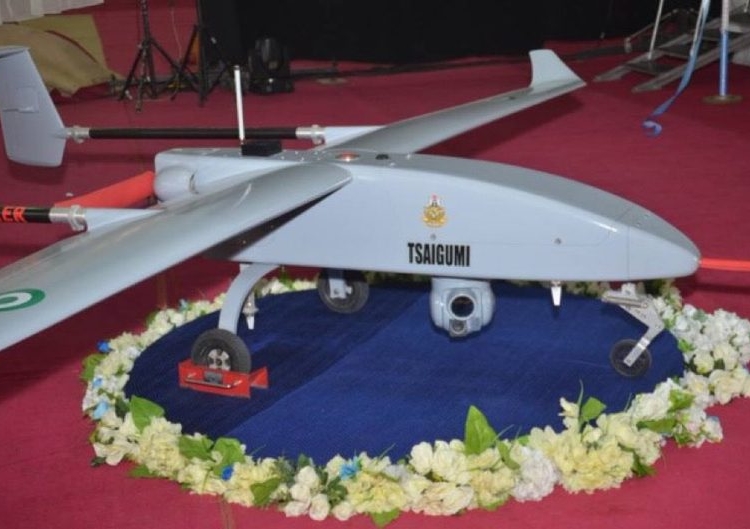In a significant stride towards enhancing its capabilities in counter-terrorism operations, the Nigerian Air Force (NAF) is set to acquire six indigenous Tsaigumi Unmanned Aerial Vehicles (UAVs) along with ground control stations and spare parts. The Nigerian government has allocated $1.54 million for this acquisition, underlining the nation’s commitment to bolster its defense systems.
The Tsaigumi UAV, developed through collaboration between the Nigerian Air Force Research and Development Centre in Kaduna and the Portuguese-based UAVision, represents a crucial advancement in Nigeria’s unmanned aerial capabilities. This particular drone project gained prominence as Nigeria actively participates in counter-terrorism efforts.
Official data regarding Nigeria’s drone development programs and capabilities is often elusive. Still, the imperative of establishing a robust UAV capability has brought certain UAV projects into the spotlight, the Tsaigumi being a notable example.
The Tsaigumi UAV, which derives its name from the local Hausa dialect, meaning ‘surveillance,’ was officially unveiled on February 15th at the Nigerian Air Force Base Kaduna. It is a twin-boom UAV with a high-wing monoplane design, offering excellent aerodynamic stability. The pusher propeller configuration and the H-type configuration tail section contribute to its effective performance.
For take-off and landing, the Tsaigumi UAV is equipped with a tri-cycle landing gear featuring two main wheels and a steerable front wheel on the nose. With a maximum take-off weight of 95kg, it strikes a balance between portability and functionality.
The Tsaigumi’s payload is accommodated within a gyro-stabilized, multi-sensor gimbaled unit beneath the fuselage. This payload unit integrates an Electro-Optical Forward Looking Infra-red System (EO/IR FLIR), enabling the capture of high-definition videos and images for aerial surveillance and monitoring.
The EO/IR FLIR system empowers the Tsaigumi UAV to track targets, perform surveys, inspect objects of interest, and conduct monitoring operations in various weather conditions. Thanks to its Global Positioning System (GPS) and Inertial Navigation System (INS), the UAV offers accurate navigation, geolocation, and real-time tracking.
Video and image data captured by the Tsaigumi UAV are transmitted to the Ground Control Station (GCS) in real-time, allowing operators to access vital intelligence, surveillance, and reconnaissance (ISR) information.
Nigeria has a history of operating UAVs and was one of the first African nations to introduce armed drones into active service. Given the pivotal role that intelligence, surveillance, and reconnaissance play in modern conflicts, the acquisition of Tsaigumi UAVs signifies a significant step forward for Nigeria’s military capabilities, particularly in the ongoing counter-terrorism operations in the country’s northeastern region. The Tsaigumi UAV is poised to become a valuable asset for national defense, contributing to the nation’s commitment to securing its territory and maintaining peace in the region.





